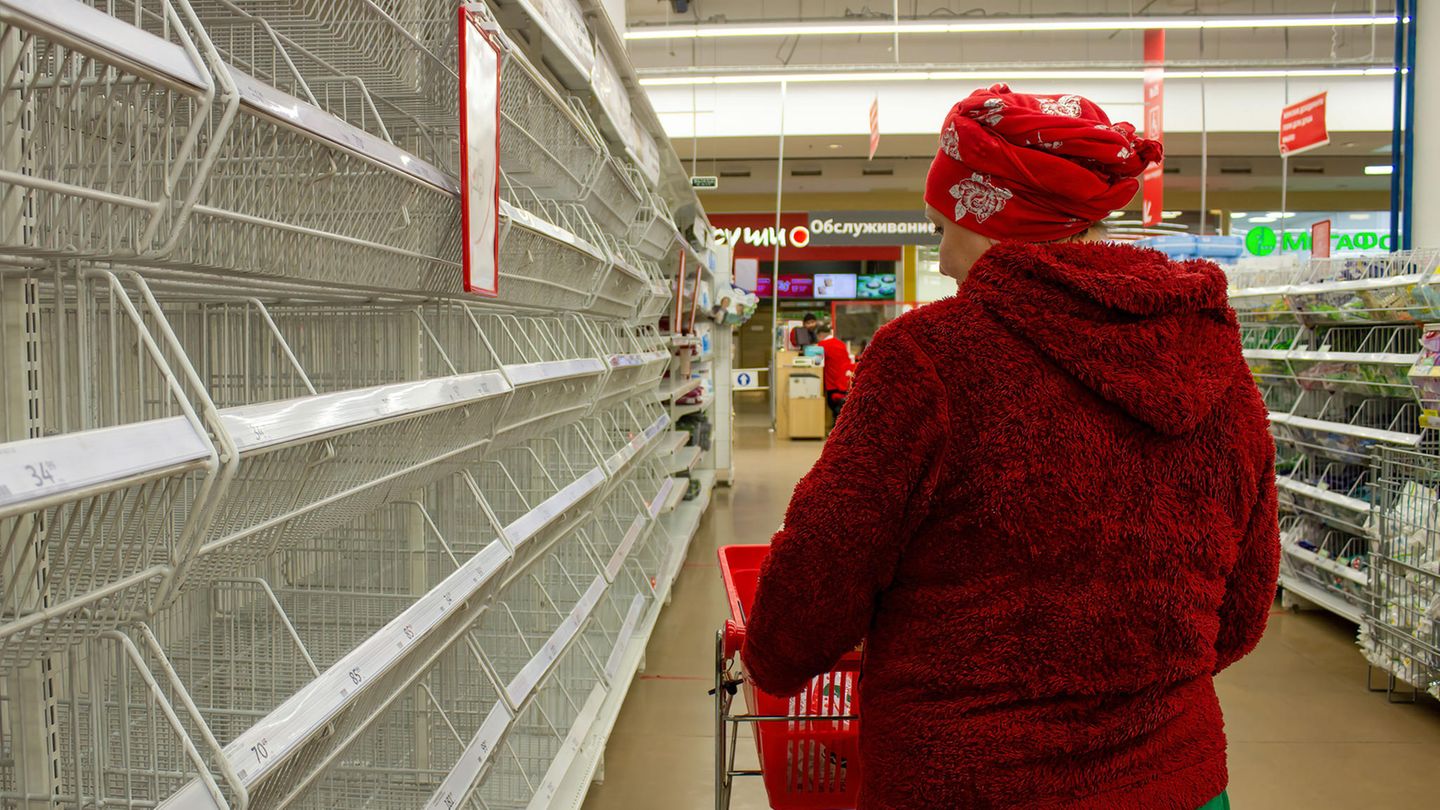podcast
Two months after the outbreak of war, the question arises: are the sanctions working – and if so, how and where? Russia expert Bernd Ziesemer explains in the podcast “The Zero Hour”why it takes time for the effects to show fully.
Vladimir Putin is as spread-legged as ever these days: The sanctions of the West have fizzled out “economic blitzkrieg” failed and the situation stabilized. Russia’s economy and financial system are at a standstill “firmly on both feet”. Of course, this is propaganda, but since the Kremlin no longer publishes figures, it is difficult for the outside world to assess the exact consequences. Therefore, two months after the outbreak of war, the question arises: Are the sanctions effective – and if so, how hard and where?
“The sanctions appear massive, but they are not a lightning war”sums up Russia expert Bernd Ziesemer, longtime editor-in-chief of the “Handelsblatt” and Capital columnist “It takes time for the full effect to show. If you ask around on the ground, outside of Moscow or St. Petersburg in the industrial cities of the Urals, you’ll learn that the sanctions are hitting companies hard and hard.” Many transports no longer take place, aircraft and ships with spare parts or machines are missing. Germany, for example, no longer supplies machine tools.
The Russian economy could collapse between eight and 15 percent this year, depending on estimates and sources. “But whether GDP collapses by 10, 12 or 15 percent is secondary – in all cases it means that the growth of the past 10 to 15 years will be erased”says Ziesemer, who was a correspondent in Moscow in the 1990s and has traveled the country repeatedly.
The Russian central bank has also admitted that Russia is suffering from the sanctions. It has been possible to stabilize the banking sector and the ruble thanks to draconian capital controls. Central bank boss Elvira Nabiullina said, however, unusually open, the sanctions “will increasingly affect the real economy”. Inflation in Russia has risen to 17.5 percent, and some experts predict it could climb to 30 percent by the end of the year. Some prices, such as sugar, have doubled. Many Russians feel this, especially the pensioners.
With hundreds of Western companies leaving the country or putting their businesses on hold, many well-paid middle-class Russians fear for their jobs. In Moscow alone, Mayor Sergei Sobyanin said 200,000 people could lose their jobs. Almost every second company has already reduced the number of employees or stopped hiring. Unemployment could double from 4.1 to a good nine percent.
Russia wants to take countermeasures with a kind of re-Sovietization – with the help of Belarus and China, supply chains are to be renewed, rebuilt and production reorganized in a new edition of the Eastern bloc. However, Russia has a problem: It is heavily intertwined with the global economy, imports contribute a fifth to economic output, 42 percent of which came from the EU and the USA. Since the beginning of the war, the volume of goods shipped to Russia has plummeted by 62 percent, according to supply chain consultancy Fourkites.
Many car factories no longer produce. In Avtova’s largest car factory in the car town of Tolyatti, a thousand kilometers south-east of Moscow, work has been suspended since the beginning of April. Many goods are no longer delivered, even if they are not on the sanctions lists. When “self sanctioning” the phenomenon is described, many companies are overcautious to do business with Russia. At the moment it is not possible to build cars in the Lada factory because there are no electronic fuel injection systems from abroad – now there are discussions as to whether mechanical pumps that were installed 20 years ago should be used again. “This shows how individual broken supply chains massively damage production in Russia”says Ziesemer. “The Russian economy will not collapse. The economy of such a large country does not simply collapse. But we are experiencing massive losses in prosperity that are setting back the country’s development for years, if not decades.”
Also, listen :ein an update on how the stock exchanges are reacting to the new situation – is it still going down?
All episodes can be found directly at , or or via .
Source: Stern
Jane Stock is a technology author, who has written for 24 Hours World. She writes about the latest in technology news and trends, and is always on the lookout for new and innovative ways to improve his audience’s experience.




